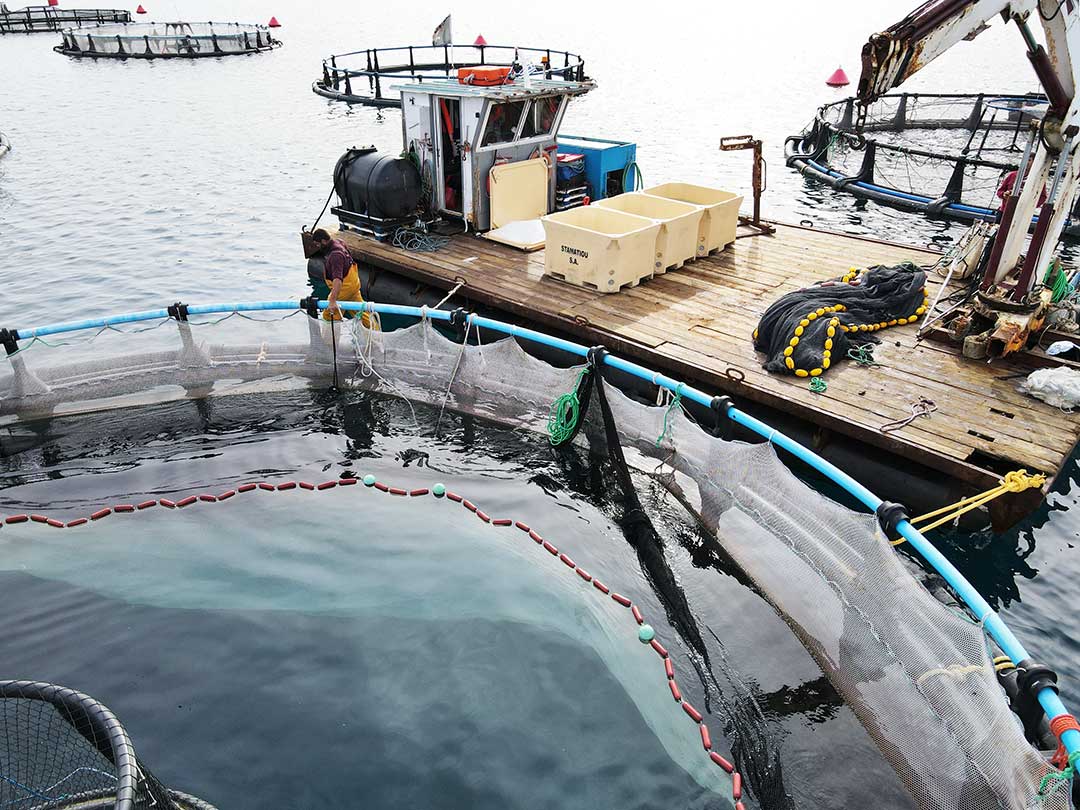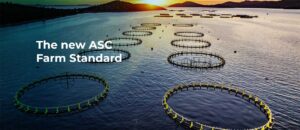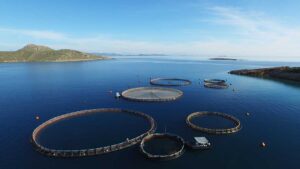Greece has a long-standing tradition of fishing and aquaculture, with its crystal-clear waters providing the perfect environment for high-quality farmed fish. From sea bass and sea bream to mussels and shrimp, Greek farmed seafood is highly sought after worldwide. But what does it take for these fish to travel from the sea to your plate? Let’s explore the fascinating journey of Greek farmed fish and the sustainable practices that ensure their quality and freshness.
The Art of Greek Aquaculture
Aquaculture in Greece is deeply rooted in history, dating back to ancient times. Today, modern fish farms blend tradition with cutting-edge technology to raise fish in controlled, eco-friendly environments. Farms are strategically placed in coastal areas and open-sea cages, where water quality and fish welfare are closely monitored.
Sustainable fish farming methods prioritize the health of the fish and the surrounding ecosystem. Farmers use natural, nutrient-rich feed and maintain optimal stocking densities to prevent overcrowding and disease. These measures help produce fish with firm texture, rich flavor, and excellent nutritional value.
Harvesting and Processing
Once the fish reach the ideal size, they are carefully harvested using humane and efficient methods to minimize stress. Advanced techniques such as chilling and rapid processing ensure that the fish maintain their freshness and high quality.
Greek seafood processing facilities adhere to strict hygiene and safety regulations, ensuring that every fish is properly cleaned, filleted, and packed under controlled conditions. Many farms also implement traceability systems, allowing consumers to track the journey of their fish from farm to table.
Distribution and Export
Greek farmed fish are in high demand across Europe and beyond. Fresh fish are quickly transported via refrigerated trucks and air shipments to ensure they arrive at their destinations in peak condition. Many restaurants, supermarkets, and fish markets worldwide proudly feature Greek seafood, known for its superior taste and sustainability.
From Kitchen to Table
Greek farmed fish are a staple of Mediterranean cuisine, prized for their delicate flavor and health benefits. Rich in omega-3 fatty acids, protein, and essential nutrients, these fish contribute to a well-balanced diet. Whether grilled with olive oil and lemon, baked with herbs, or served as part of a traditional Greek dish, farmed fish from Greece provide a delicious and nutritious dining experience.
The Future of Greek Aquaculture
As global demand for sustainable seafood grows, Greek fish farms continue to innovate and improve their practices. With a focus on environmental responsibility, ethical farming, and technological advancements, the industry is set to expand while maintaining its commitment to quality and sustainability.
Conclusion
The journey of Greek farmed fish from sea to table is a testament to the country’s dedication to excellence in aquaculture. Through responsible farming practices, efficient processing, and swift distribution, Greek seafood reaches consumers worldwide while maintaining its freshness and rich flavor. Next time you enjoy a plate of Greek farmed fish, you’ll know the care and expertise behind every bite.



